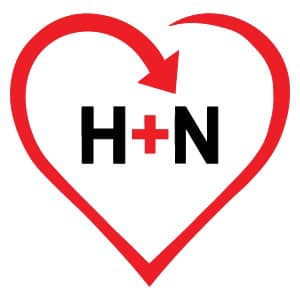Stabilized blood pressure is essential to living a healthy life. This important part of your health often goes unnoticed and even forgotten about. However, it is something that truly needs to be focused on and cared for on a regular basis. Your body has six quarts of blood and your heart will generally beat almost 3 billion times in your lifetime. Your heart works hard to pump blood through almost 60,000 miles of blood vessels within about one minute.
What is Blood Pressure?
It is a common procedure for doctors to take your blood pressure during your office visit. However, not many people know what exactly blood pressure is. Your heart squeezes and contracts blood into your two main arteries, the aorta and the pulmonary artery. Your heart relaxes and repeats the contraction about 60 to 70 times per minute in adults who are resting. This process is referred to as a heartbeat.
When blood pressure is taken it is actually measuring the pressure in your arteries. The first measure is taken when the greatest force squeezes the blood into your arteries, this is referred to as systolic pressure. The second measure is taken when your heart is relaxed, which is referred to as diastolic pressure.
What is Normal Blood Pressure, Low Blood Pressure or High Blood Pressure?
Your blood pressure level changes from moment to moment and depends on the activity you are doing. The amount of stress you feel, how much water you have consumed that day also factors in to the results. According to the American Heart Association an adult should have a blood pressure reading of 120/80 or less, to be considered a healthy reading. There are other categories that are recognized as well and may raise concern about your circulatory health.
- Prehypertension (120-139 systolic or 80-89 diastolic) – If your blood pressure falls into this range you will want to monitor your blood pressure on a regular basis.
- Hypertension 1 (140-159 systolic or 90-99 diastolic) – If your blood pressure reaches this level you will want to discuss it with your doctor. Usually lifestyle changes and medication are recommended to lower blood pressure.
- Hypertension 2 (160 – 179 systolic or 100+ diastolic) – This is considered serious blood pressure readings and you should speak to your doctor as soon as you can about what you can do to stabilize blood pressure levels.
- Hypertension Crisis Level (180+ systolic or 110+ diastolic) – If your blood pressure reflects these numbers you need to seek emergency treatment immediately.
What Affects Blood Pressure?
Blood pressure is generally affected by how fast your heart beats, the amount of blood in your system, the resistance to flow in your arteries and how much blood each heartbeat pumps. Blood volume is created by the amount of water and sodium you consume. The more blood in your system, the harder your heart and vessels work. Luckily your body has a way of regulating the blood volume by excreting sodium and water through your kidneys, gastrointestinal tract, skin, lungs and urine. If you lack water in your system, or you don’t drink enough on a daily basis, your kidneys will reserve sodium and water to use for the creation of new blood.
Exercising and stress can also affect your blood pressure. This is normal for short-term situations such as jogging, working-out in the gym, or stressing over a traffic jam. Once you complete your task of exercising or make it through the traffic and arrive at your destination safely, your heart calms down and lowers blood pressure. It is usually when your daily life is filled with stress constantly for weeks, months or years that the circulatory and cardiac system is forced to run at peak performance as if you were running all day, every day.
Maintaining Healthy Blood Pressure
Eating a healthy diet filled with fresh fruits, vegetables and poultry, plus drinking plenty of water on a daily basis is a good foundation to a healthy lifestyle. You will also want to incorporate 30 minutes of exercise per day, most days of the week.
Exercising is often the most difficult task to add into your daily life. Mostly due to busy work, school and family schedules. Exercising doesn’t have to be complicated or even mean a trip to a gym. Walking, jogging, running, swimming, bicycling and hiking are excellent ways to exercise. If your schedule is busy, try adding a few extra steps to your day routine. For example, park farther away from the entrance of your office building, take the stairs instead of the elevator and take a brisk walk on your lunch break.
A healthy lifestyle is essential for healthy blood pressure. Speak to your doctor regarding any lifestyle changes you wish to make and inquire if supplements such as PD120, which helps maintain healthy blood pressure, is suitable to your needs. There are a variety of things you can do to keep your stress levels down as well, such as practicing Yoga, Tai Chi and speaking to a licensed therapist.

Leave a comment
This site is protected by hCaptcha and the hCaptcha Privacy Policy and Terms of Service apply.